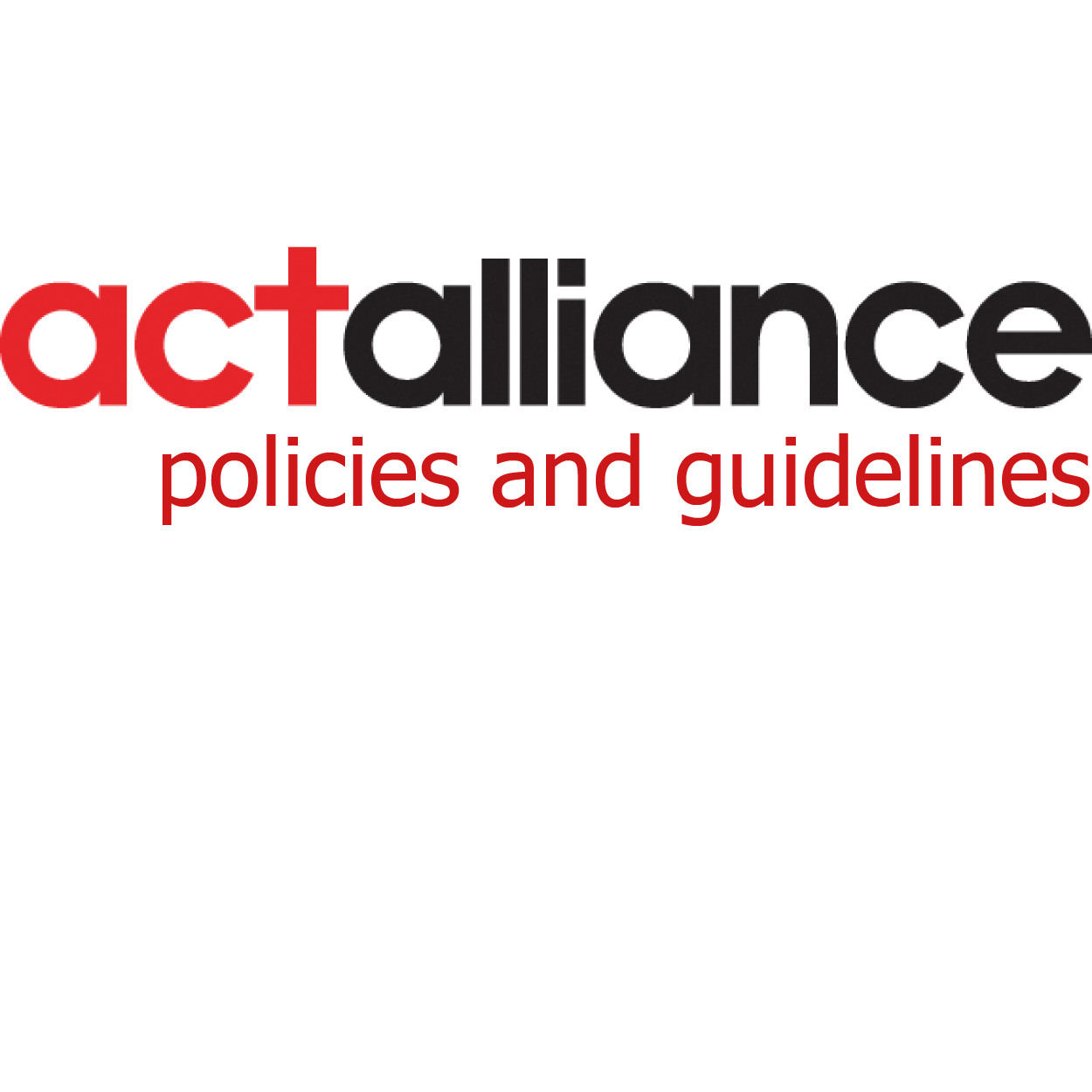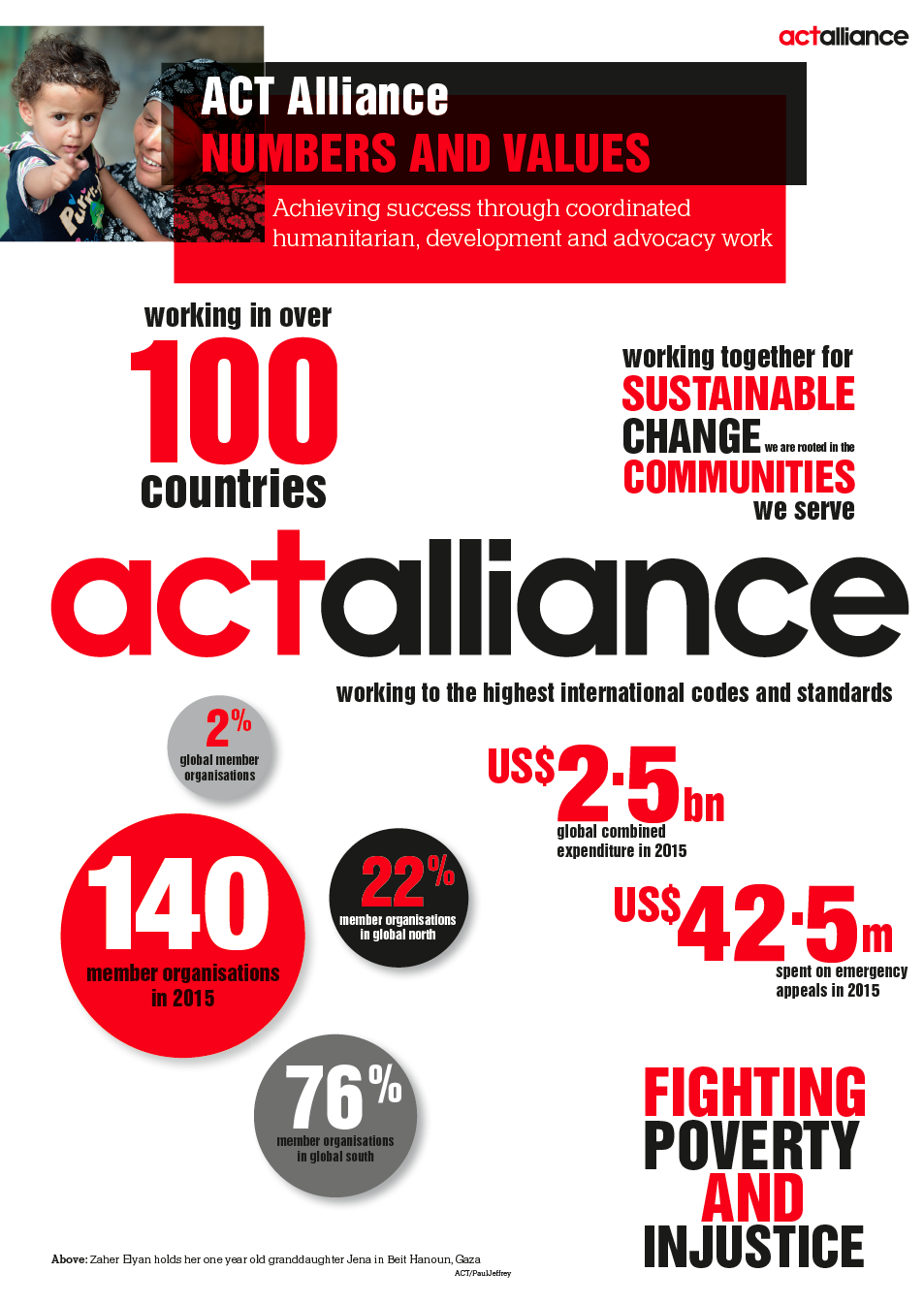ACT members and forums throughout the world are involved in advocacy on different issues and at different levels on a daily basis. Situations that require immediate action, or global support from the wider membership of the ACT Alliance may arise. In such cases, ACT Alliance will use its influence and contacts to immediately lobby or advocate.
Therefore, the ACT Alliance Urgent Advocacy Call is a mechanism for ACT members and forums to ask for global support in emerging difficult situations. It serves to mobilise the entirety of ACT Alliance towards major issues and cases where quick advocacy action is required
The objective of the ACT Alliance Urgent Advocacy Call is to enable ACT members and forums at national and regional level to call upon the global ACT Alliance for solidarity and action on advocacy when this is needed urgently. Where necessary, resources can be mobilised from the alliance membership to support the urgent advocacy action.
The ACT Alliance Urgent Advocacy Call responds to issues faced by all ACT members, forums and their partners in the following situations:
- Individuals or organisations facing imminent risk
This is in cases where either individuals or organisations are being, or run the risk of being, persecuted, jailed or in other ways face substantial threats in the course of their work.
- Shrinking political space
This is a situation where the political or human rights situation is rapidly deteriorating, ACT members are affected, and regional or global response or solidarity is needed.
This is a situation where an ACT member, national or regional forum, involved in a particular advocacy process, requests that ACT members globally reinforce this with targeted advocacy in their respective countries or at international arenas, such as the UN Security Council, UN Human Rights Council, AU, EU, etc.
Coordinated by the ACT secretariat, the urgent advocacy call will be issued to the membership of ACT Alliance, elaborating specific actions to be taken. A call for action can be limited to certain members, based on the relevance of the issue and their capacity to act. The number of recipients will depend on the target group for the request as outlined by the relevant ACT forum.
Upon receiving an urgent advocacy call ACT Alliance members are requested to take local, national, regional and international advocacy actions to address and influence the situation. The level of action will be determined by the context, and will range from the minimum support of posting statements on their own website and referencing it publicly; proactive press release citing partner or setting up online action; to active lobby or campaigning action. This could include maximising the use of their networks, communication channels, campaign capacity, political and diplomatic contacts and so forth.
For more information and the from/template click here
(ACT Alliance Urgent Advocacy Call templates/forms)


